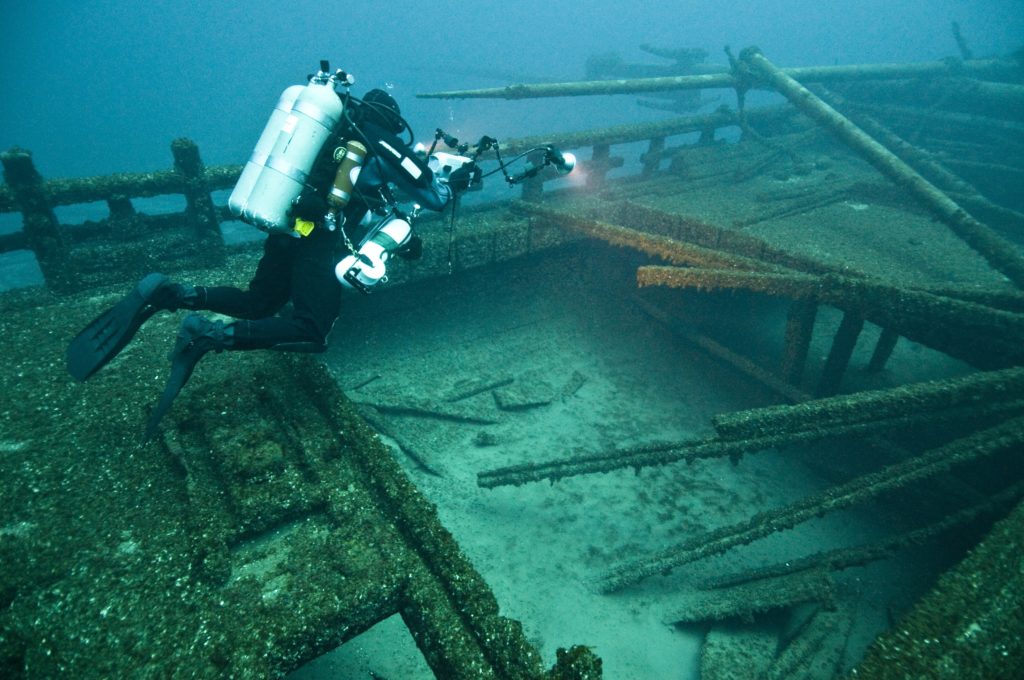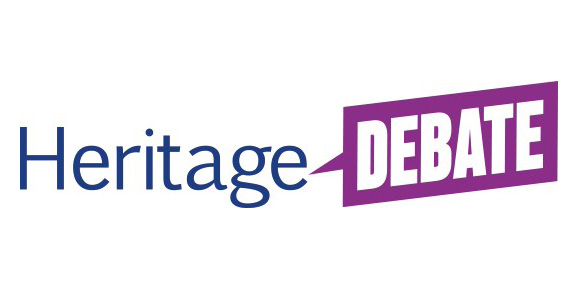Blog from Lloyd’s Register Foundation on the future of heritage.
Shared in the lead-up to The Heritage Alliance’s Heritage Debate 2022: Heritage in 20 years.

Heritage in 20 Years: what will matter most?
The volume of goods transported by sea is greater than ever, and new maritime industries, such as offshore renewable energy and seabed mining, are growing rapidly. Healthy oceans are critical to tackling climate change, but as industrialised activity intensifies, stress on the ocean environment increases. At the same time, economic and environmental factors mean that coastal communities, especially in the developing world, are at risk of displacement and dislocation.
It is vital for us to understand how we can create a safe and sustainable ocean economy. Learning from the past can help tackle this complex and urgent challenge. Tangible evidence such as remains of coastal settlements, shipwrecks and historical records tell a story about our past interactions with the oceans and how current assumptions and attitudes have been shaped. Intangible evidence such as cultural practices, local skills and traditional knowledge can represent a very different source of insight and new perspectives on more sustainable futures.
Lloyd’s Register Foundation’s Learning From the Past (LFP) programme is working with global partners bringing evidence and insight to the attention of those that can make change happen. The following two decades will be critical for accelerating the reassessment of human activities impacting cultural heritage on land, along the shore and out at sea. Given the current challenges of climate change and rising ocean levels, many physical and intangible aspects of maritime cultural heritage will only survive through the records being created now.
Currently, there are unprecedented opportunities to align cultural heritage with mainstream, international ocean sustainability programmes. For example, the integration of underwater cultural heritage into the UN Decade of Ocean Science for Sustainable Development is being progressed via the Ocean Decade Heritage Network. By the end of the UN Ocean Decade, the historical dimension of people’s relationships with the sea will be integrated into ocean science and policy. The ‘ocean we want’ will be inspired and informed by the long and diverse histories and living heritage of people and the sea.
Right now, new survey technology and new processing methods, such as artificial intelligence, are leading to unprecedented amounts of new information about the seabed being available. The Seabed 2030 Project has the ambitious aim of mapping the entirety of the seabed using sonar technologies. As a result, much new information about underwater cultural heritage is being revealed. Introducing new Marine Protected Areas will be key to ensuring that marine landscapes of historical and natural significance are not adversely impacted by the expansion of industries such as subsea cable laying and bottom trawling.
Raising awareness on these issues is crucial, as the future of maritime cultural heritage will rely on ocean-literate people able to make informed and responsible decisions regarding the ocean and its resources (as defined by UNESCO). Much knowledge resides in vulnerable coastal communities, and the LFP programme will recognise how important previous experience of change is in understanding the past and how that can inform new ways to safely manage future planning. By generating and funding new resources and insights, we can build momentum for change, deepen understanding and amplify advocacy. After all, if it is not safe, it is not sustainable.
– Louise Sanger, Head of Research, Interpretation & Engagement, Lloyd’s Register Foundation Heritage & Education Centre.

Explore other perspectives on ‘Heritage in 20 Years: what will matter most’ over on our event page for Heritage Debate 2022.

